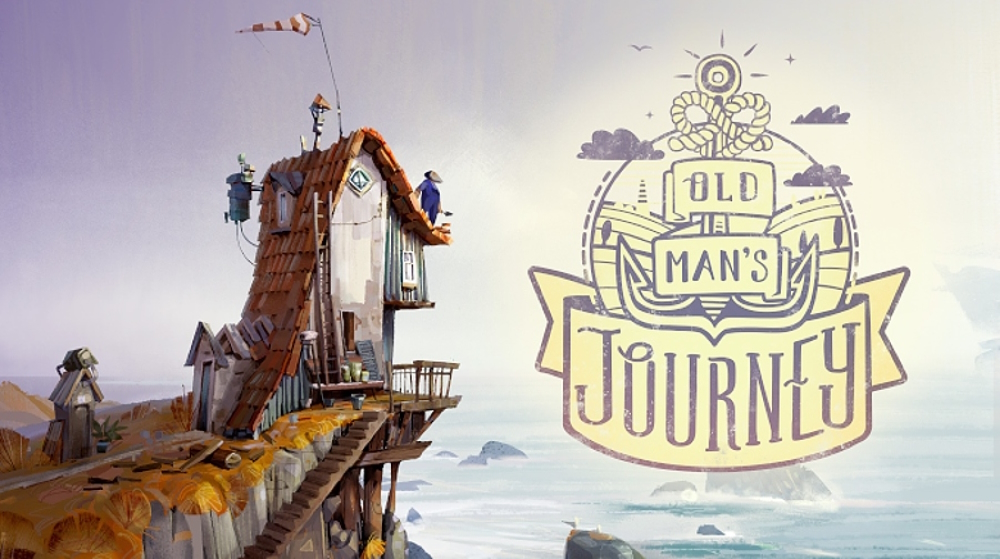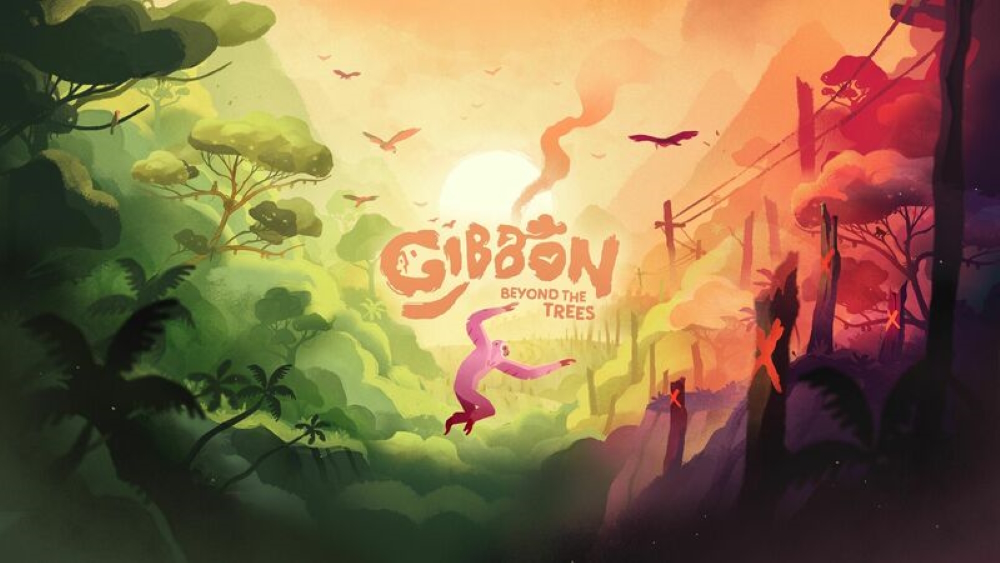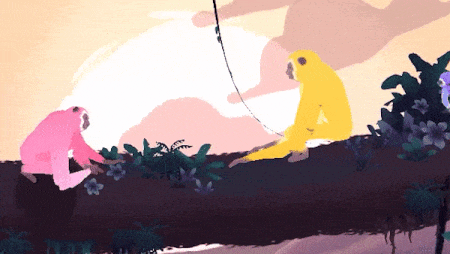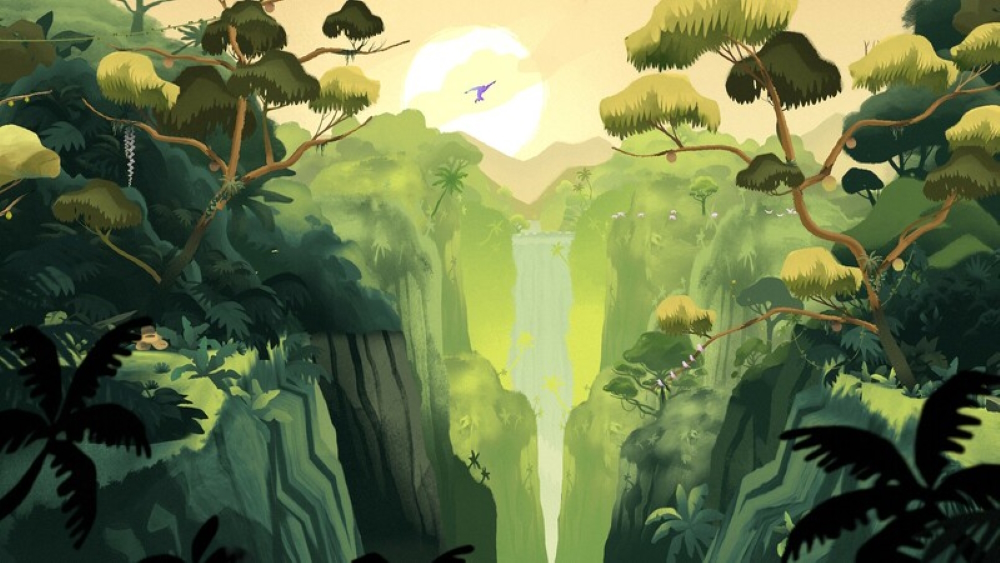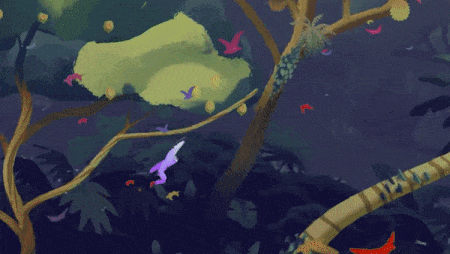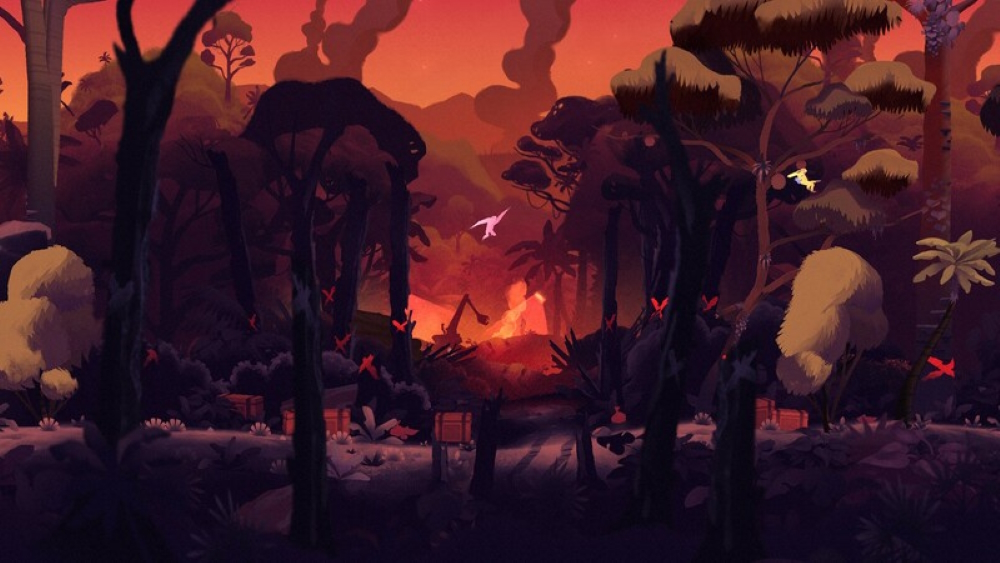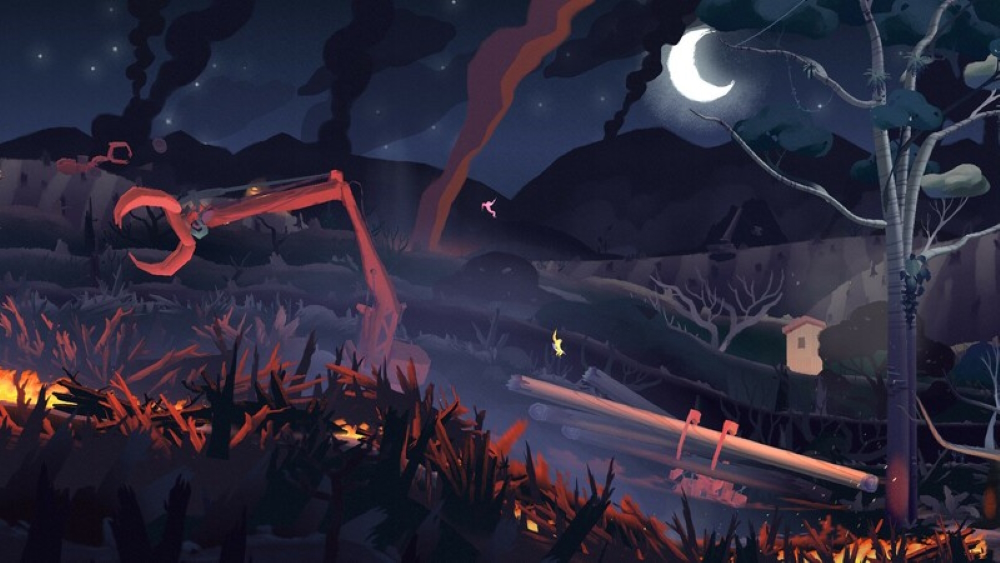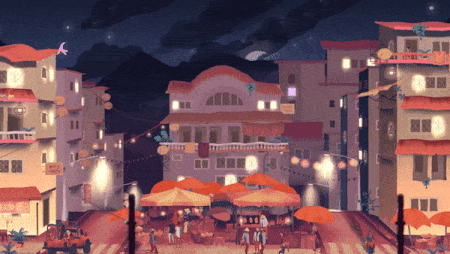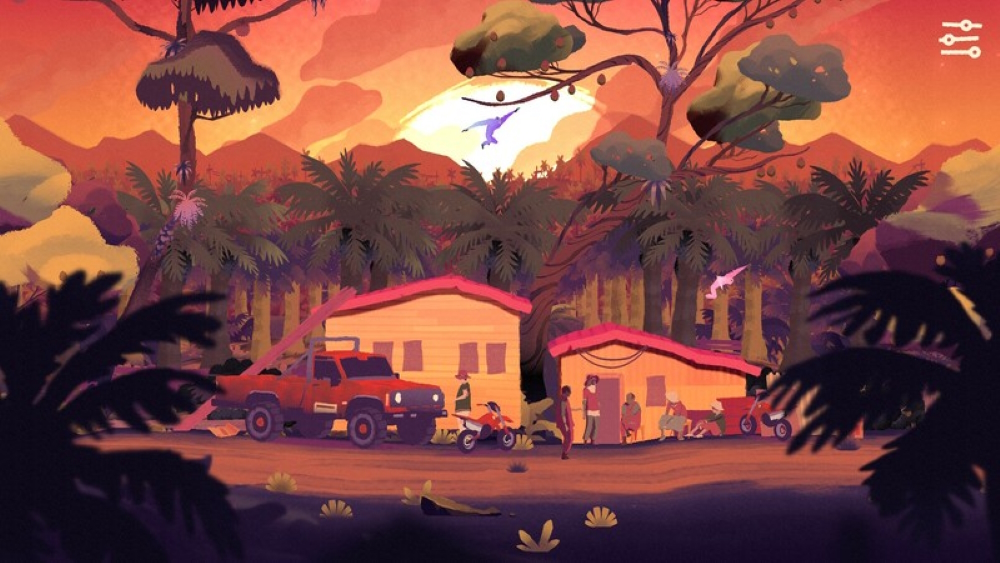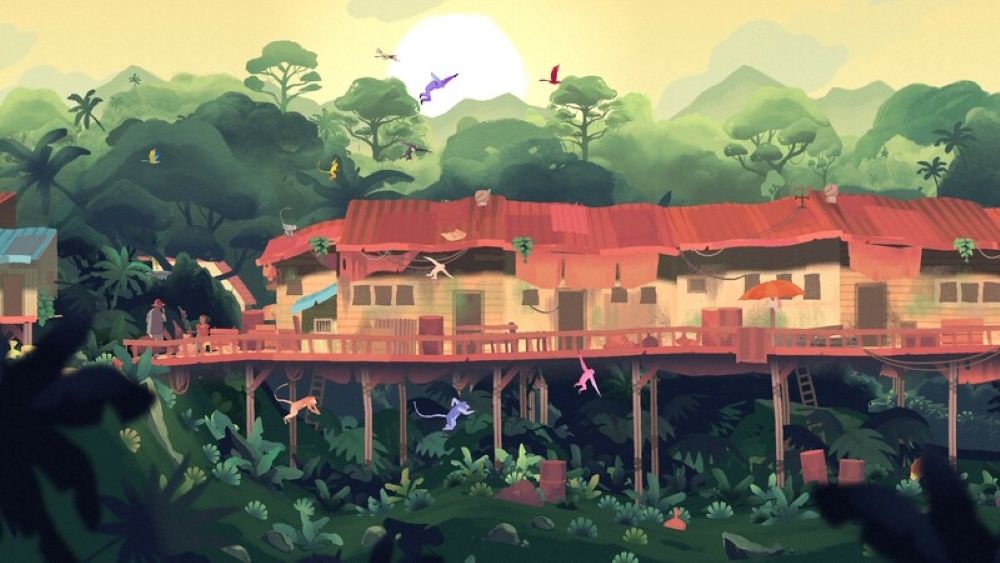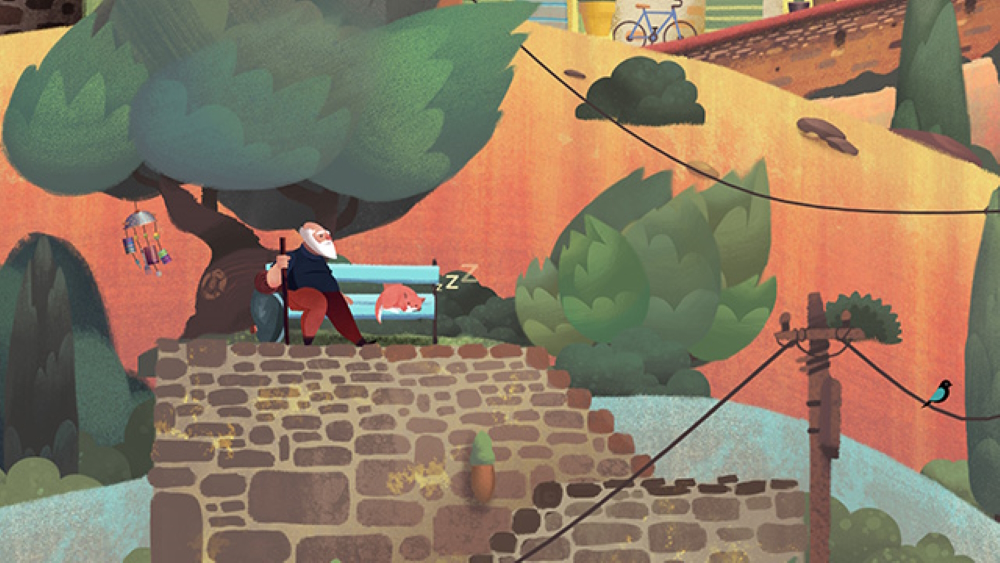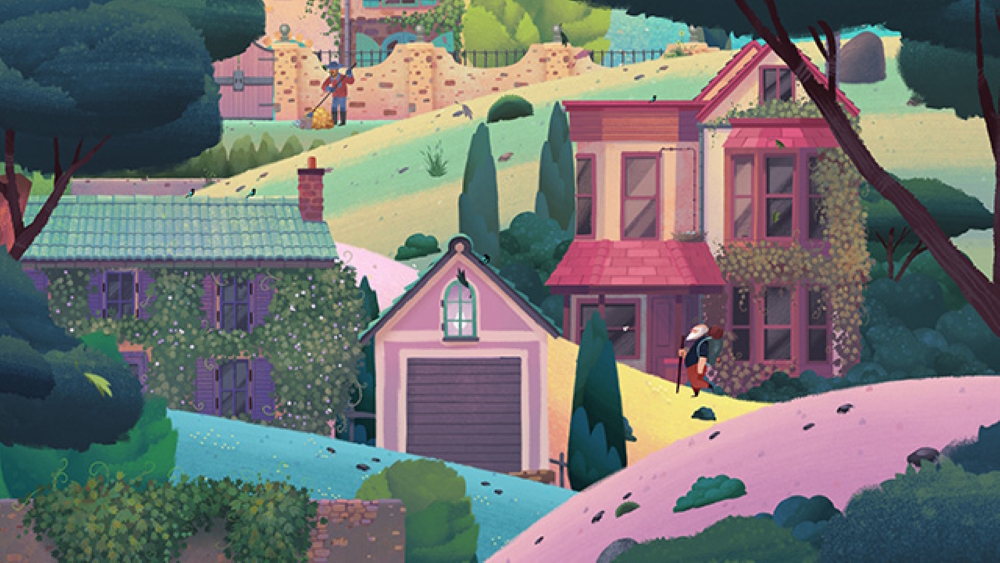Clemens Scott
creative / art director & lead artist of game development studio Broken Rules
Austria
“One of the most joyful things I’ve ever witnessed in the history of video games” (Rock Paper Shotgun). “A lesson in empathy” (Kotaku). „A simple, truthful story, surrounded by gorgeous music, art and design" (director Guillermo del Toro, 'The Shape Of Water'). „A masterpiece of environmental storytelling, and an utterly flawless game experience" (The Spectrum). The first two reviews refer to 'Gibbon: Beyond The Trees' („A hopeful game about the beauty of wilderness and the destructive force of human civilisation“), the other pair to its precursor 'Old Man’s Journey' („A story game about life's precious moments, broken dreams, loss and hope“). Both releases were honoured with the Apple Design Award and originated from the multi-awarded, independent studio Broken Rules that designs, develops and publishes original, hand-crafted digital games. The collective’s work was praised on bonusstage.co.uk in just seven words: It „is the definition of gaming as art".
Clemens Scott
creative / art director & lead artist of game development studio Broken Rules
Austria
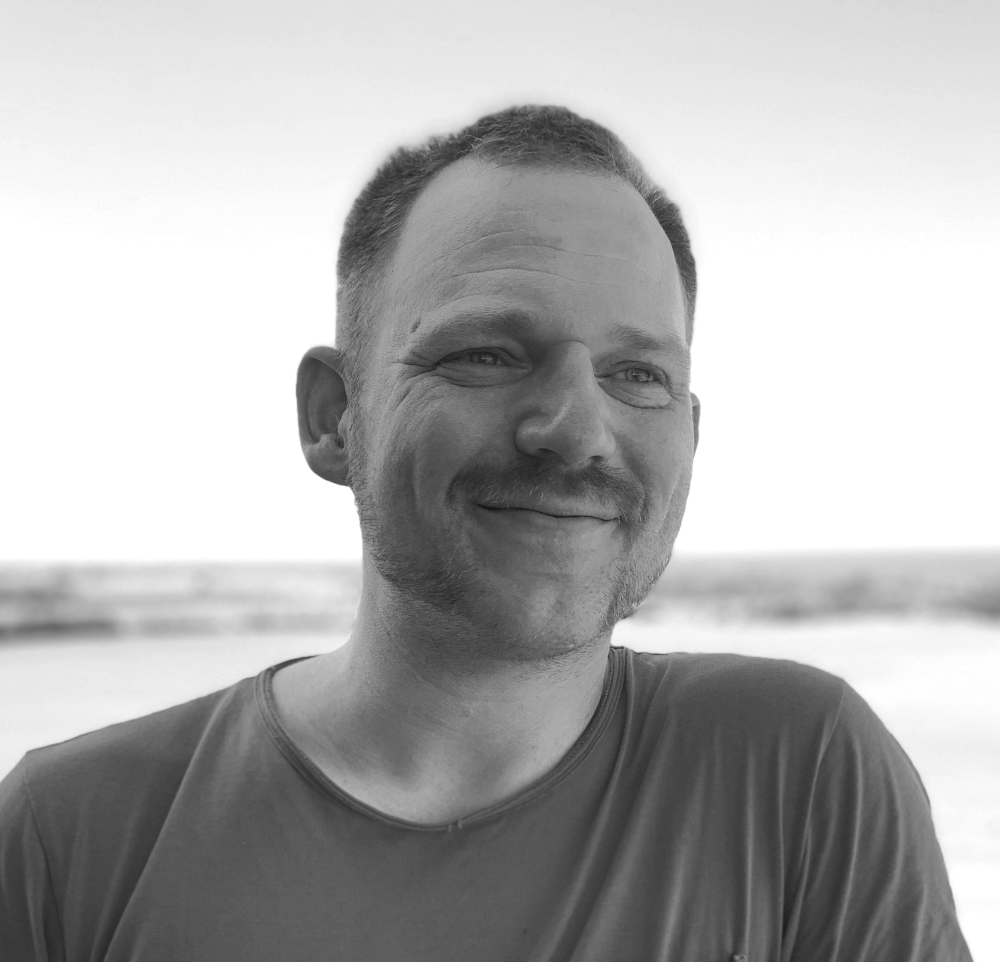
„We seek to make every game a new and meaningful experience that lingers in your mind long after you’ve powered down your computer.“ The company’s goal is to be read on its homepage. With this high approach in mind it‘s no surprise the makers consider video games to be ‘important cultural achievements’. And the studio’s crew puts words into action too. Their finely crafted outputs have nothing in common with the typical ego-shooter-, car-chase- or war-stuff of any competitor. This Interactive Media Corporation breaks the rules as the firm’s name expresses already. It „values quality over quantity“.
That it is the way it is is of no surprise if you look at one of the five co-founders: Clemens Scott, creative/art director & lead artist of this firm that was established in Austria’s capital Vienna in 2009. Despite being self taught the qualified print and web designer (* 1983 close to Vienna) makes games professionally since 2007. He who took on his American stepfather’s surname in the youth has even set up a „personal website, project archive and knowledge database". On nchrs.xyz (pronounced „anchors“) one gets a deep and impressive insight into the man’s person(ality), believes, values, philosophy of life, interests and more. If you take the time and stroll through the many headers linked to numerous subdirectories there’s much to read. After clicking on 'knowledge' you'll discover the sections theory, practice, play and wisdom. 'Projects' is an archive of selected works and ongoing projects featuring interactive, illustration, development and workshop. 'Directory' offers a list of things including an inventory of everyday and household objects, tools as well as instruments and board/card games plus the divisions reading (books), watching (movies), playing (games), writing, bookmarks. Then there's still 'About' with meta and personal. In the latter's (flexible) 'routine'-part one even comes to know how an "ideal regual weekday" of this father of a son is structed precisely (it starts at 5 am by waking up and finishes with sleep at 10 pm ). Clemens Scott calls his detailed virtual insight „my digital garden and personal assistant. It is an ever growing, changing, living document that functions as a repository for projects and a personal database for knowledge. A place to collect words as the years drift by.“ Each section the programmer, who practises Kung Fu and Qi Gong since 2022 twice a week, for two to three hours, opens up with a wise quote. Like this one by Mahatma Ghandi that sums up what the native Austrian believes in:
"Your beliefs become your thoughts.
Your thoughts become your words.
Your words become your actions.
Your actions become your habits.
Your habits become your values.
Your values become your destiny."
Clemens Scott lives and works in Vienna (Austria).
Interview February 2023
Gaming as art: a new and meaningful experience that lingers in your mind after the computer is powered down
INTUITION/IMAGINATION
How does intuition present itself to you – in form of a suspicious impression, a spontaneous visualisation or whatever - maybe in dreams?
In meditation and spontaneous inspiration.
Will any ideas be written down immediately and archived?
Occasionally, depending on the stage of a project.
?: How do you come up with good or extraordinary ideas?
Close examination, trial and error and iterations.
?: Do you feel that new creative ideas come as a whole or do you get like a little seed of inspiration that evolves into something else and has to be realized by endless trials and errors in form of constant developments up until the final result?
Experimentation, trial and error, guided learning and repetition built a repertoire that I can mould, remix and adapted to new projects and constraints. Simultaneously I extend and fortify my repertoire with every project.
What if there is a deadline, but no intuition? Does the first fuel the latter maybe?
Healthy constraints encourage pragmatism and creativity. Time pressure can lead to surprisingly good results, but becomes detrimental to the quality of the work as well as the health of the worker if sustained over a long period of time. Or even worse, when it is a ubiquitous part of work.
INSPIRATION
What inspires you and how do you stimulate this special form of imaginativeness?
Nature, travel, utopias, books, family.
?: How do you filter between ideas worthwhile pursuing and bad ones that you just let go of?
By setting goals for a project and attempting to align every aspect or idea with those goals as well as all other existing ideas. If it doesn’t click after a few different approaches, it’s likely to go back in the drawer. Also by failing early, that is trying to get to the core of the idea as quickly as possible without a lot of fluff around it.
Has it to appeal to you primarily or is its commercial potential an essential factor?
I have enjoyed working on projects with a lot of personal appeal but little commercial potential more so than the other way around. However, the commercial potential is an important driver. Ideally, both goals are in balance.
Do you revisit old ideas or check what colleagues/competitors are up to at times?
Occasionally.
CREATIVITY
Which time/place/environment suits your creative work process the best (tranquillity or pressure) and which path do you take from theory/idea to creation?
I work best in the mornings, in a quiet, comfortable atmosphere, alone or with one or two other people and as few distractions or interruptions as possible. A minimum level of stress can be a helpful incentive to get to work, but I perceive my self-motivation as high enough.
What is better in the realization process: speed and force creativity i.e. grasp the magic of the moment, or a slow, ripening process for implementation/elaboration?
Both are valid techniques, depending on the project and the task. Long term, complex creative visions commonly take a slow ripening process, whereas details can often be tackled creatively by quick decisions based on intuition.
?: Do you have any specific strategies you use when you are feeling stuck creatively?
Sometimes it helps to reflect with friends and colleagues, sometimes it’s plain rubber ducking – overcoming the obstacle by explaining it to someone else before the other person could even respond. Sometimes changing the environment is beneficial, or doing something completely different mentally and physically. Loosening and letting go of worries, stress and negativity is something that can be trained. Other times it’s simply to keep on trucking until the blockade blows over.
How important are self-doubt and criticism (by others) during such a process i.e. is it better to be creative on your own, only trust your own instincts, or in a team?
Self-doubt can be a great asset to explore creative possibilities as long as it appears within an inquisitive mindset and not as a negative belief toward my own capabilities. Feedback is great when it comes at the right time: I have explored all immediate paths in a fairly closed process and now open up to be receptive to new angles and different approaches. Kind and respectful feedback is more effective to me because I can process and improve faster without spending energy on filtering the helpful parts from the negative emotions.
Should a creative always remain true to him-/herself including taking risks & going against the flow or must one, for reasons of (commercial) survival, make concessions to the demands of the market, the wishes of clients and the audience’s expectations?
Despite my opinions on what I consider ethically acceptable or not, it is not onto me to judge the reasoning for how someone conducts their creative work. If anything, I would rather criticize the structures and dynamics that compel a person into either acting egoistically or doing work that they find untrue to their values.
How is innovation still possible if one has established a distinctive style and, just in case, is it good to be ahead of one’s time even one hazards not being understood?
It depends on your goals as an artist. Do you want to relentlessly push boundaries no matter the cost or do you just want to go along with everyone else and pay your rent? Where you want to place yourself on that spectrum is a highly individualistic matter - there is no right or wrong answer.
When does the time come to end the creative process, to be content and set the final result free - or is it work-in-progress with an endless possibility of improvement?
A creative piece of work is hardly ever done, but when the output doesn’t warrant the input any more, it’s usually good enough. Letting go is an important practice for perfectionists, just as finishing something that you started.
?: In case of failure or - worse - a creativity crisis how do you get out of such a hole?
I have experienced true personal crisis as something that I can only overcome by making fundamental changes that go far beyond resolving a creative block. It takes a re-evaluation of my trajectory in life, looking at my unresolved issues and seeking external, professional help on multiple levels. A crisis carries enormous potential for positive personal transformation and growth, but it takes time, dedication and not lastly the privilege of a financial and social safety net.
SUCCESS
Should/can one resist the temptation to recycle a ‘formula’ one’s successful with?
A formula is not necessarily a guarantee for continued success, but neither is re-inventing the wheel for every project.
Is it desirable to create the ultimate/timeless work, but doesn’t “top of the ladder” bring up the question of “what’s next?” i.e. isn’t such a personal peak “the end”?
If you can look at your craft with the eyes of a beginner every day, you will always learn something new. There is no end to mastery. On the other hand, if you feel like you peaked, that’s great! It means that you reached your goals and that you are now free to do something completely different. Go plant a garden! Build some furniture or bake some bread. Learn how to live self-reliantly. Learn how to build, repair and maintain. Look at the world through the eyes of a beginner again.
MY FAVORITE WORK:
My best known work is a video game called 'Old Man’s Journey'. I’m proud of it because it’s my most personal game while also being my most successful game to date.
